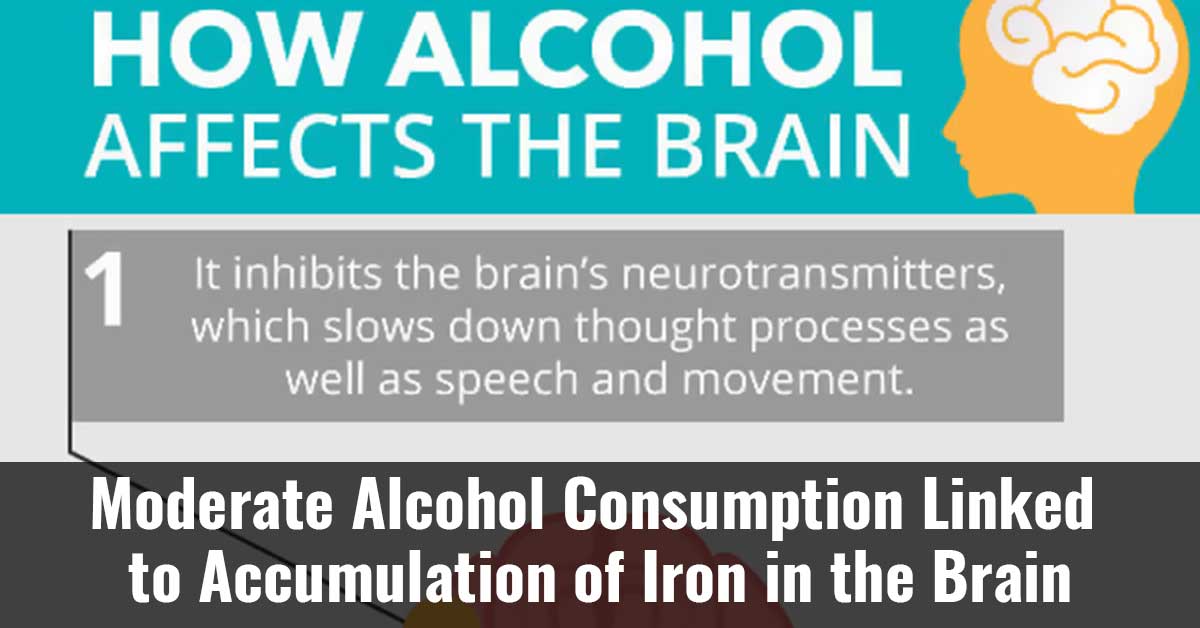A study involving about 21,000 individuals has reported that consuming 7 or more units of alcohol weekly is linked to higher levels of iron in the brain. Accumulation of iron in the brain has been associated with Parkinson’s and Alzheimer’s diseases and is a potential mechanism for cognitive decline related to alcohol consumption.1✅ JOURNAL REFERENCE
DOI: 10.1371/journal.pmed.1004039
There is mounting evidence that even moderate consumption of alcohol can impact brain health adversely. The researchers examined associations between alcohol consumption and levels of iron in the brain.
The UK Biobank participants self-reported their consumption of alcohol, and their brains were scanned making use of MRI. Approximately 7,000 also had their livers imaged making use of MRI to evaluate systemic iron levels. All participants performed a series of simple tests to evaluate motor and cognitive function.
The average age of the participants was 55 years old and 48.6% of them were female. Even though 2.7% considered themselves as non-drinkers, average consumption was about 18 units weekly, which equals approximately 6 large glasses of wine or 7½ cans of beer.
The researchers observed that consumption of alcohol over 7 units weekly was linked to higher iron markers in the basal ganglia, a group of brain areas linked to procedural learning, eye movement, emotion, cognition, motor control movements, and more. Accumulation of iron in some brain areas was linked to worse cognitive function.
Even though consumption of alcohol was self-reported and could be underestimated, this was regarded as the only feasible way of establishing consumption of such a large cohort.
The study’s limitation is that MRI measures are indirect brain iron representations, and could conflate other changes in the brain found with alcohol consumption with iron level changes.
Considering the prevalence of moderate alcohol consumption, even modest associations can significantly impact whole populations, and interventions to reduce alcohol consumption could benefit the general population.

Image Source – sheerrecovery



